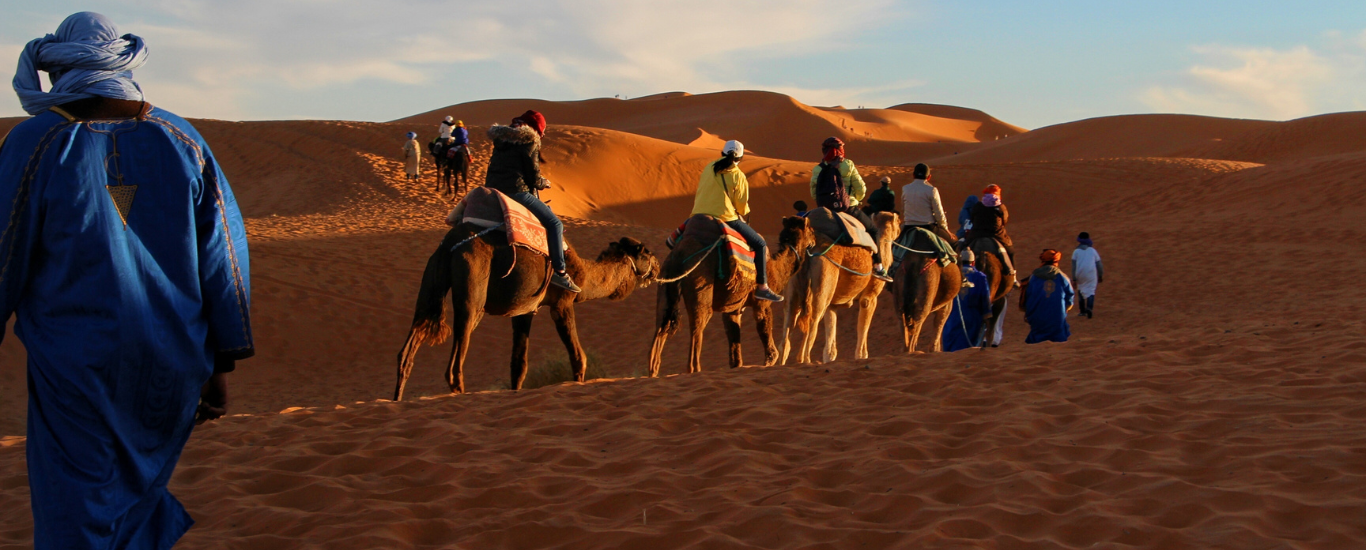
No vaccinations are required for Morocco. While there is a limited risk of Malaria in some parts of rural Morocco (remote areas of the sub-Saharan desert), its not recommended to take anti-malarial drugs for travelers following standard city- based itineraries.
Morocco has a diverse geography, from the cooler, wetter Mediterranean and Atlantic coast in the north, to the desperately hot, arid deserts and mountains of the south. You can encounter a wide range of climatic conditions and you should be prepared.
March, April, May, part of June, September & October - perfect warm temperatures (25 to 35 degrees Celsius) in the south, very little chance of rain and warm evenings, except in March and early April where evenings and mornings can be cooler (13℃ to 17℃).
Mid November to Mid-February is mostly warm (15 to 25 degrees Celsius) but can be very chilly in evenings and it may rain but rarely for long periods.
Mid-June, July and August can be very hot in Marrakech and in the south (up to 45 degrees Celsius), but more pleasant in the mountains and on the coast.
Morocco is an Islamic country. The religion is an integral part of the culture. Morocco is a land of tolerance, where Jews, Christians and Muslims live together in peace.
The local currency is the Dirham (MAD). Foreign currencies can be converted at most banks, but it's not wise to carry too much. Pounds Sterling, US Dollars or Euros can be changed into local currency at any hotel, airport or bureau de change.
ATMs are installed in most towns providing a secure and cost-effective way to retrieve money from your bank account or credit card
MasterCard, Visa and American Express are widely accepted, even in some shops in the souks, particularly for carpets.
Please ensure all required fields are completed.
Please ensure all required fields are completed.